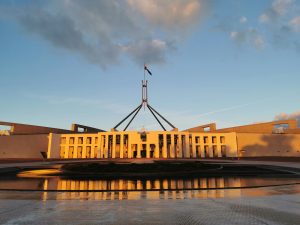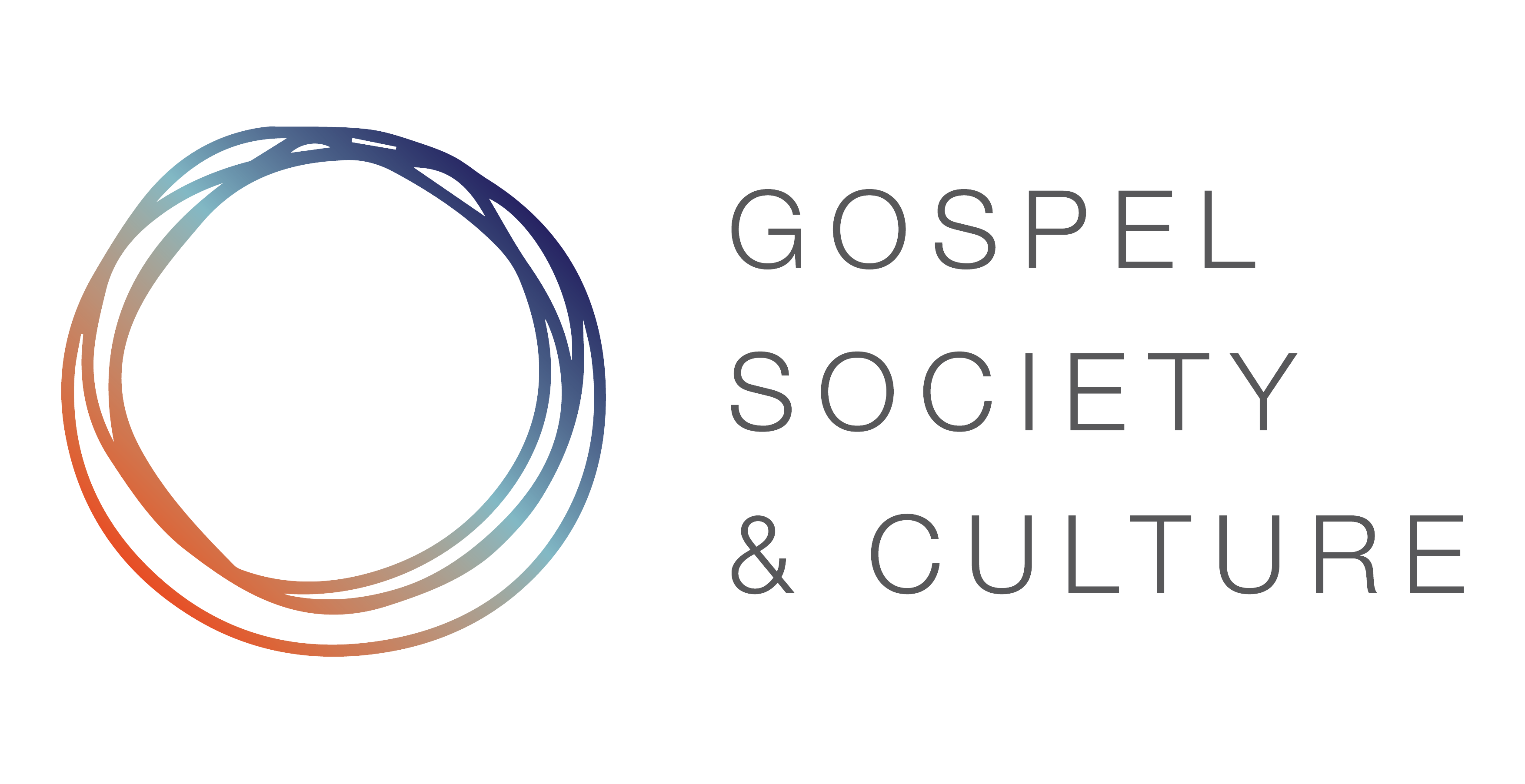by John McClean
As Australians head to the polls for another federal election, there are global anxieties about the state of democracy [The Global State of Democracy 2023; Dangerous cracks in US democracy pillars]. Even in Australia there seems to have been a decline in satisfaction in democracy from high levels in the early 2000s. A 2023 study found that almost all Australians value democracy and most are satisfied with Australian democracy, but nearly half think that its future is at risk and that democratic institutions and processes are corrupted.

There is no set Christian formula for voting, but voters don’t put their Christian values to one side either. (Photo: Serina Bird on Unsplash.)
So how should Christians in Australia think about democracy as this election approaches?
For more than a century, democracy has been widely seen as the political system of modernity, embraced by nations worldwide as a guarantee of prosperity and freedom. The conflicts of the 20th century were widely interpreted in Australia, Britain, the United States and Western Europe as “defence” of democracy. The collapse of communism in the Soviet bloc in the late 1980s seemed to clear the way for global democratisation.
However, cracks have appeared in those convictions. The promised prosperity and freedom are not as evident in the 2020s. Many people, especially young people, have lost confidence in the democratic process to deliver what they want. They suspect that democracy (ironically) serves the interests of elites and cannot be trusted. Global threats —military tensions, climate change and refugees — seem to not be addressed by democratic structures.
In the face of disillusion, it is important to remember why Christians would support democracy, what it can achieve and what it will not deliver. On that basis, I want to suggest some ways to think about why we vote, why it matters and how to approach it.
David Koyzis sets out two theological foundations for democracy (see D. Koyzis, Political Visions & Illusions: A Survey & Christian Critique of Contemporary Ideologies IVP, 2019). First, God deals with nations (Gen 10:32; Dt 32:8; Job 12:23; Ps 7:8; 46:6; Isa 13:4), not only with rulers. A nation or people, whatever their political system, is not the personal possession of an individual (a monarch) or a few rulers (an oligarchy). It is a community which has a corporate responsibility to act justly. This view is reflected in the idea that leaders are answerable to God and are servants of their people (Deut. 17:14-20; Mk 10:42-45; Rom 13:1-7). This was expressed with the idea that nations exist based on a covenant between God, the people and the ruler — an idea that largely sprang from Reformed theology. If a nation is a people, not just the ruler, Koyzis concludes, “it seems particularly appropriate that those citizens should exercise responsibility within and over that community.” (Koyzis, 123).
Secondly, Koyzis highlights that Christianity is realistic about the propensity for rulers to abuse their power. All humans are corrupt by nature and, even when redeemed in Christ, they are still foolish and fallible. So even the “Christian magistrate” needs to be kept in check. Political authorities are answerable to God and should also be accountable to the people. So “it makes sense to place checks on them by requiring them to submit to the periodic verdict of the voters.” (Koyzis, 123).
While a full defence of a political system requires far more than two paragraphs, these points show how Christian convictions have fed the development of democracy. This is not to say that democracy is a “Christian” political system. There is no such thing and Christians have lived under and served in a whole range of polities. There is, though, a good case for Christians to seek to preserve a democratic system.
Koysiz warns that a structural democracy should not be confused with “democratism”. He points out ways in which a commitment to democracy can become a destructive ideology. It can foster a sense of radical individual autonomy in which democratic ‘self-rule’ justifies every individual acting in self-determination with no respect for God’s rule or for the need to submit to one another. Democracy can also become majoritarian and validate the will of the majority over any minority. We can support democracy, but must be wary of democratism.
The Westminster Confession summarises the Christian view of political authorities. They are to bring God glory by promoting “the public good”, particularly to defend the nation, protect those who seek to do good and punish those who do evil (WCF 21.1). Democracy can promote this as citizens have a role in shaping policies for the public good and hold leaders accountable for their programs and decisions.
At the same time, no political system can ever deliver what humans need. Even our physical needs are met by God’s goodness through a whole society — not solely, or mainly, by a government. Moreover, humans flourish as we know and love God. We find our true freedom in serving him. We must not invest our ultimate hopes in democracy, or any other polity. No human leader is the solution to our problems. Christ Jesus is the one ruler who will bring prosperity and peace when he establishes the kingdom of God (Psalm 2; 72; Is. 9:6-7; 11:1-9; Rev. 19:1-16). That will come when he defeats and replaces every kingdom — even Western democracies.
So, how do we approach a federal election?
First, we should thank God that a democracy like Australia’s gives us an opportunity to determine our government. As we pray for and give thanks for all people, including rulers, we should also thank God that in Australia our political system allows us to live relatively peaceful and quiet lives and provides freedom to worship God and share the gospel of Christ (1 Tim 2:1-4).
Second, we should pray for our leaders and everyone involved in the election process. Prayer is the great contribution Christians and churches make to the political process. We have a priestly ministry, interceding for our nation and asking the Lord to preserve, bless and direct us. We should also pray that the Lord will continue to provide leaders for Australia and that he will call believers to stand for election.
Third, Christians should seek to be responsible and informed voters. Democracy functions well when voters consider the candidates, their track records and their policies and determine their vote on that basis. Careless and thoughtless voting undermines the process.
Christians are also called to vote with a concern for their neighbour and the common good and not simply from self-interest (Gal 6:8). There is no Christian formula for determining your vote and the Christian vote is not locked to any party.
You will need to come to your own conclusion on who you vote for and how you reach that decision. It is certainly worth listening to how others around your church come to their choice.
Fourth, we seek to promote peace in our communities (Psa. 34:14; Matt. 5:9; Rom. 12:18; Heb. 12:14; James 3:18; 1 Pet. 3:11). Political discussion has always been fractious and is only getting more divisive. We can work to be different. We can promote understanding and discussion. That does not mean that we have to censor our views or avoid political debate. It means we treat people with different political views as those who are made in God’s image and give them the respect they deserve (James 3:9). Even if we consider our opponents to be “enemies”, the Lord calls us to love them (Matt 5:44; Lk 6:27, 28; Rom 12:14). Loving political opponents is difficult, yet it will be a more effective witness to Christ than our political views (whatever they are).
Finally, it is worth considering getting more fully involved in the political process. This is not for everybody. It is a call for some Christians to be part of the process, to join a party or even stand for parliament. John Calvin famously stated that “civil authority is a calling, not only holy and lawful before God, but also the most sacred and by far the most honourable of all callings” (J Calvin, Institutes, IV.xx.4). Obviously, it is too late to join up for this election. Prayerfully consider this as part of how you serve your neighbour and honour God.
This election (like every election) gives Australians an opportunity to shape our nation. We might feel that as Christians we have little real influence. The way we engage can have as much influence as does our ballot. Most importantly, we pray. Our allegiance is to a King who overrules all human politics and we are citizens of his kingdom that brings true peace and blessing. From that basis we can do our part as citizens.
